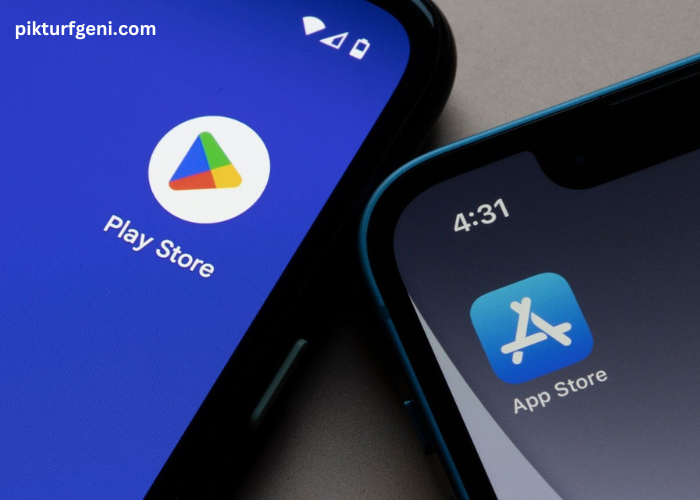In today’s technological landscape, Flutter has positioned itself as a robust framework for cross-platform application development. It provides a new way of creating intuitive applications with visual consistency and native performance on multiple platforms. As Flutter’s rich ecosystem expands, diverse tools have emerged to improve the app development experience. This guide will help you explore some of the most widely used Flutter development tools and their key features.
What is Flutter?
Developed by Google, Flutter refers to an open-source UI SDK (software development kit) that allows developers to build mobile, web, and desktop applications for multiple platforms. Flutter is known for its seamless cross-platform capabilities, expressive UI, and development efficiency. Some of the prime benefits of Flutter development include:
- Faster time-to-market
- Cost-effectiveness
- Design flexibility & custom UI
- Access to native features
- Rich ecosystem & community support
Best Flutter Development Tools to Consider
Flutter development tools streamline the process of debugging, testing, and deploying applications. As today’s app development market is too competitive, finding the best tool for your project is tough. Hence, to improve the credibility of your enterprise application, we’re here with the top 8 Flutter app development tools you should consider before deciding to hire a Flutter developer.
1. Flutter SDK
Flutter SDK is used to build, test, and compile native applications. It’s an open-source Flutter development tool that allows developers to build stunning and responsive UIs. Flutter SDK has a robust CLI (command-line interface) helps create new projects, run tests, and manage packages. Key features of Flutter SDK include:
- Comprehensive widget library
- Built-in testing support
- Hot reload for quick UI updates
2. Dart DevTools
Dart DevTools is an important suite of debugging and performance tools for Flutter developers. It includes features like a memory allocation viewer, performance view, and widget inspector that help developers diagnose issues effectively in their applications. With this tool, Flutter developers can visualize app performance metrics and optimize responsiveness.
Key features of DartDevTools include:
- Performance monitoring
- Memory analysis
- Widget inspector for visualization
3. Visual Studio Code
Visual Studio Code (VS Code) is a feature-rich open-source code editor for Windows, macOS, and Linux. Developed by Microsoft, this tool offers extensive features like debugging, semantic code interpretation, customization, IntelliSense code completion, etc. With its vast library of extensions, VS Code enables developers to customize their environment to suit their workflow. Key features include:
- Intuitive user interface
- Integrated terminal & Git support
- Robust plugin ecosystem
4. Android Studio
Android Studio is the official IDE (integrated development environment) for Android app development. It consists of several tools, including a visual layout editor, code refactoring tools, debugger, built-in support for the Flutter SDK, etc. Moreover, this tool allows developers to create, test, and debug Flutter applications more quickly. Key features of Android Studio include:
- Flutter integration
- Intelligent code editor
- Built-In emulator support
5. Codemagic
Codemagic is a Flutter-based CI/CD (Continuous Integration and Continuous Deployment) tool that automates the app creation and deployment. It helps developers focus on creating codes rather than managing releases. This tool also supports iOS and Android, making it a great choice for Flutter developers looking to simplify the app deployment process. Key features of Codemagic include:
- Integration with version control
- Pre-configured build environments
- Multiple platform support
6. Supernova
Supernova is one of the best design-to-code tools that efficiently bridges the gap between design and development for Flutter apps. It lets developers quickly customize your app’s colors, layouts, fonts, and other features. Supernova significantly saves time and reduces discrepancies in app design and implementation. Key features of this tool include:
- Easy code design
- One-click export to Flutter code
- Interactive Prototyping
7. Panache
Used by approximately forty million developers, Panache is a renowned open-source Flutter material editor for themes and font creation. It helps developers customize colors, shapes, and designs and create custom themes easily. Many Flutter app development agencies leverage this editing tool to create stunning Android and iOS applications. Key features of Panache include:
- Customizable widgets, colors & shapes
- Material design integration
- Free and open-source
8. Firebase
If your app requires real-time data synchronization, Firebase is important. It enables data synchronization and communication across Android, iOS, macOS, and web applications. Firebase also provides mobile application backend services, including authentication, database, storage, and hosting. Key features of Firebase include:
- Real-time updates
- Database integration
- Measuring and tracking performance
Final Words
In today’s market, if you want to make a new application stand out within a budget, the final product must be extraordinary enough to grab the attention of your targeted customers. Whether you want to create an app for your startup or launch an enterprise-level application, the tools mentioned above may cater to all your Flutter app development needs. By leveraging these tools, skilled developers can create better apps, accelerate project workflow, and deliver unmatched user experience.
For businesses looking to develop cross-platform applications efficiently, partnering with the right Flutter app development agency like CodeClouds ensures access to experienced developers who can fully leverage top-notch Flutter development tools to create visually appealing and feature-rich applications across all platforms.
